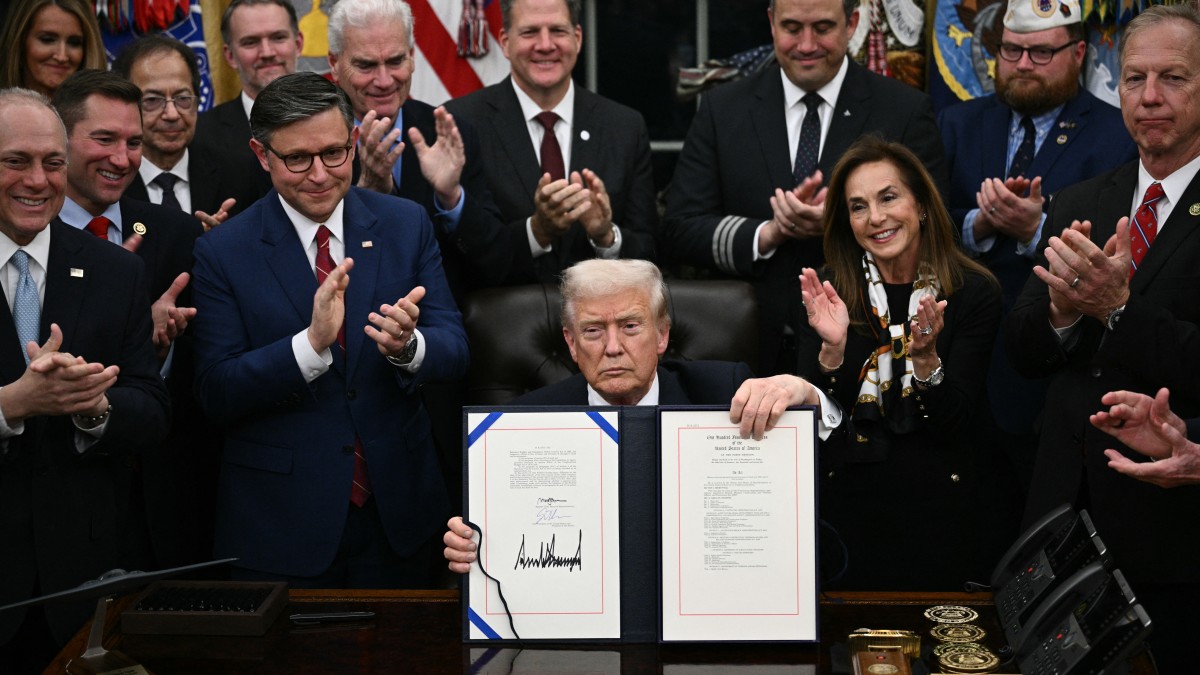The US House passed on Wednesday a bill ending the longest-ever shutdown and reopening the government. Both chambers of Congress have now voted to end the shutdown. President Donald Trump has signed the bill, marking the official end to the shutdown.
“I just want to tell the American people, you should not forget this when we come up to midterms and other things. Don’t forget what they’ve done to our country,” Trump said.
The Republican-controlled chamber voted 213-209 to move towards a final vote on the measure, with Trump’s support largely keeping his party together in the face of vehement opposition from House Democrats, who are angry that a long standoff launched by their Senate colleagues failed to secure a deal to extend federal health insurance subsidies.
The Republican-led House of Representatives voted largely along party lines to approve a Senate-passed package that will reopen federal departments and agencies, as many Democrats fume over what they see as a capitulation by party leaders.
Quick Reads
View All“They knew that it would cause pain, and they did it anyway,” House Speaker Mike Johnson said in a withering floor speech before the vote, pointing the finger for the standoff at the minority party.
“The whole exercise was pointless. It was wrong and it was cruel.”
What’s in the bill?
The federal funding bill would provide monetary assistance to most government agencies through January 30, meaning that the Republicans and Democrats cannot agree on a temporary spending measure that will fund the government through the end of the fiscal year.
The legislation would provide full funding for the Supplemental Nutrition Assistance Program (SNAP), commonly known as food stamps, through the remainder of the fiscal year, which ends on September 30. The deal would also replenish SNAP’s contingency fund and fully fund child nutrition programs, including free and reduced-price school meals.
Lawmakers have also included a $203.5 million package for the protection of members of the House and Senate. The new legislation will also provide funding to support Capitol complex physical security requirements.
The legislation also ensures retroactive pay for the roughly 1.4 million federal employees who were furloughed or required to work without pay during the shutdown. Many of them have missed two full paychecks and a partial one.
Democrats furious over bill
Eight Senate Democrats on Monday broke with party leadership to pass the funding package, which would extend funding through January 30, leaving the federal government on a path to keep adding about $1.8 trillion a year to its $38 trillion in debt.
“I feel like I just lived a Seinfeld episode. We just spent 40 days and I still don’t know what the plotline was,” said Republican Representative David Schweikert of Arizona, referring to a popular 1990s U.S. sitcom.
“I really thought this would be like 48 hours: people will have their piece, they’ll get a moment to have a temper tantrum, and we’ll get back to work.”
He added: “What’s happened now when rage is policy?”
House Democrats remain adamantly opposed, angered by the Senate deal that came less than a week after Democrats won high-profile elections in New Jersey, Virginia and New York City that many thought strengthened their odds of winning an extension of health insurance subsidies. While the deal sets up a December vote on those subsidies in the Senate, Speaker Mike Johnson has made no such promise in the House.
Democratic Representative Mikie Sherrill, who last week was elected as New Jersey’s next governor, spoke against the funding bill in her last speech on the US House floor before resigning from Congress next week, encouraging her colleagues to stand up to Trump’s administration.
“To my colleagues: do not let this body become a ceremonial red stamp from an administration that takes food away from children and rips away healthcare,” Sherrill said.
With inputs from agencies
)